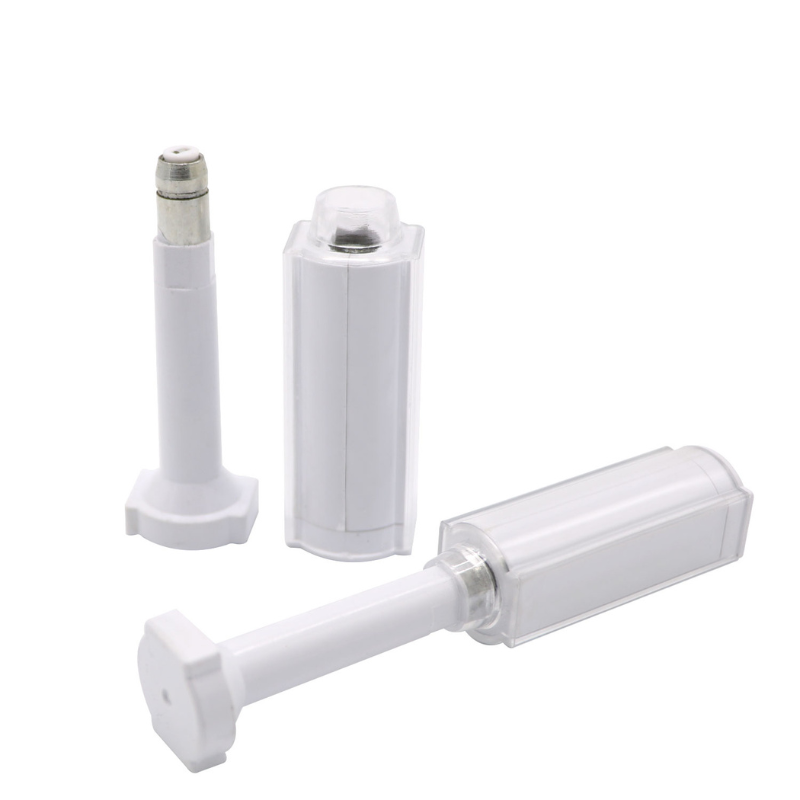
RFID Technology and Its Role in Industry 4.0
Table of Contents
Summary
At the heart of this revolution is RFID (Radio Frequency Identification) technology, which plays a crucial role in enhancing operational efficiency and optimizing internal processes. This article explores the interaction between RFID technology and Industry 4.0, highlighting how RFID contributes to this new industrial paradigm.
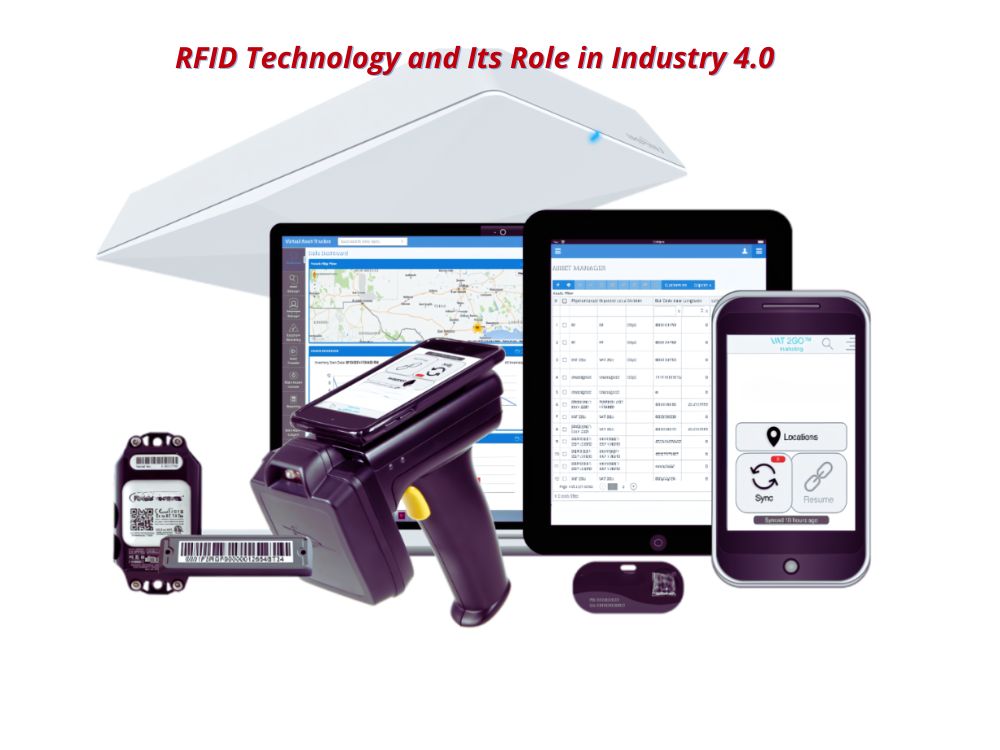
Overview of RFID Technology in Industry 4.0
RFID technology facilitates real-time data collection and integration, which is pivotal for Industry 4.0. By using radio waves to transmit and receive data, RFID systems streamline various aspects of industrial operations, from inventory management to equipment monitoring. This seamless data integration supports enhanced decision-making and operational efficiency across industries.
Key Elements of RFID Technology
RFID systems have several core components that provide real-time data and automation. The main elements include:
- RFID Tags: These are small devices attached to objects that store and transmit information via radio waves.
- RFID Readers: Devices that emit radio waves to communicate with RFID tags and capture the data they transmit.
- Antennas: Components that facilitate the transmission and reception of radio signals between RFID tags and readers.
- Middleware: Software that processes and integrates the data collected from RFID tags into business systems.
Technologies Driving Industry 4.0
Industry 4.0 encompasses various technologies that work synergistically to enhance industrial processes. Here are some key technologies driving this transformation:
Internet of Things (IoT)
The IoT connects physical devices to the internet, enabling them to send and receive data. This connectivity allows for improved process control, automation, and real-time monitoring. When combined with RFID technology, IoT enhances data accuracy and facilitates better decision-making.
Big Data
Big Data refers to the large volumes of data generated during industrial processes. Advanced analytics tools process this data to extract actionable insights, leading to optimized operations and improved efficiency. RFID systems contribute by providing detailed data on inventory and asset management.
Collaborative Robots (Cobots)
Cobots are designed to work alongside humans, performing repetitive or hazardous tasks. They enhance productivity by taking over monotonous tasks and allowing human workers to focus on more complex activities. RFID technology can track cobots operations and provide real-time status updates.
Cloud Computing
Cloud computing provides scalable data storage and processing capabilities. It enables seamless integration of data from various sources, including RFID systems, across different business functions. This centralization improves data accessibility and analysis, supporting more informed decision-making.
Artificial Intelligence (AI)
AI and machine learning algorithms analyze data collected from RFID systems and other sources to predict trends, optimize processes, and enhance operational efficiency. AI applications in Industry 4.0 leverage data to automate decision-making and improve overall performance.
Benefits of Integrating RFID in Industry 4.0
The integration of RFID technology into Industry 4.0 offers several key benefits:
Benefits of RFID Technology in Industry 4.0
Benefit | Description |
Real-Time Data Integration | Enables immediate data collection and analysis, improving decision-making and operational control. |
Enhanced Accuracy | Reduces errors associated with manual data entry and tracking. |
Cost Reduction | Minimizes operational costs through automation and reduced human error. |
Increased Productivity | Automates repetitive tasks, freeing up resources for more strategic activities. |
Optimized Efficiency | Streamlines processes and resource utilization, leading to improved performance metrics. |
New Business Models | Opens opportunities for innovation and new business strategies, even in traditional sectors. |
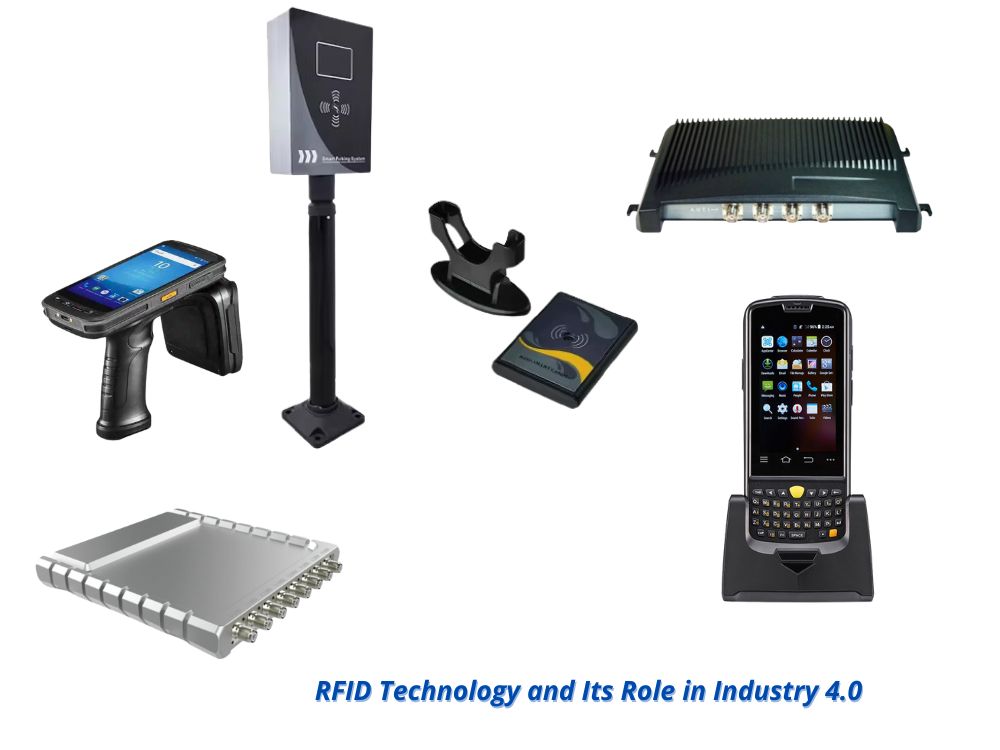
Conclusion
RFID technology is a cornerstone of Industry 4.0, driving improvements in efficiency, accuracy, and productivity. By integrating RFID with other advanced technologies such as IoT, Big Data, and AI, industries can achieve significant advancements in operational performance and decision-making. As Industry 4.0 continues to evolve, RFID technology will remain a pivotal component in the quest for greater automation and data-driven insights.
Comments
Hot Products
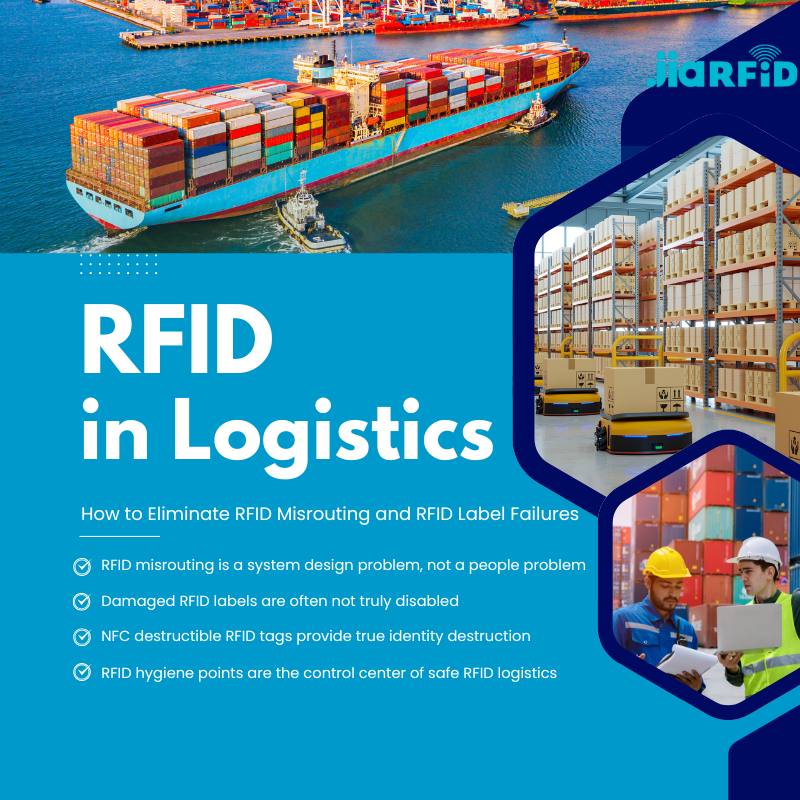
RFID in Logistics: How to Eliminate RFID Misrouting and RFID Label Failures
RFID in logistics is more than just a tool to speed up processes. It has become a key part of how modern supply chains operate.
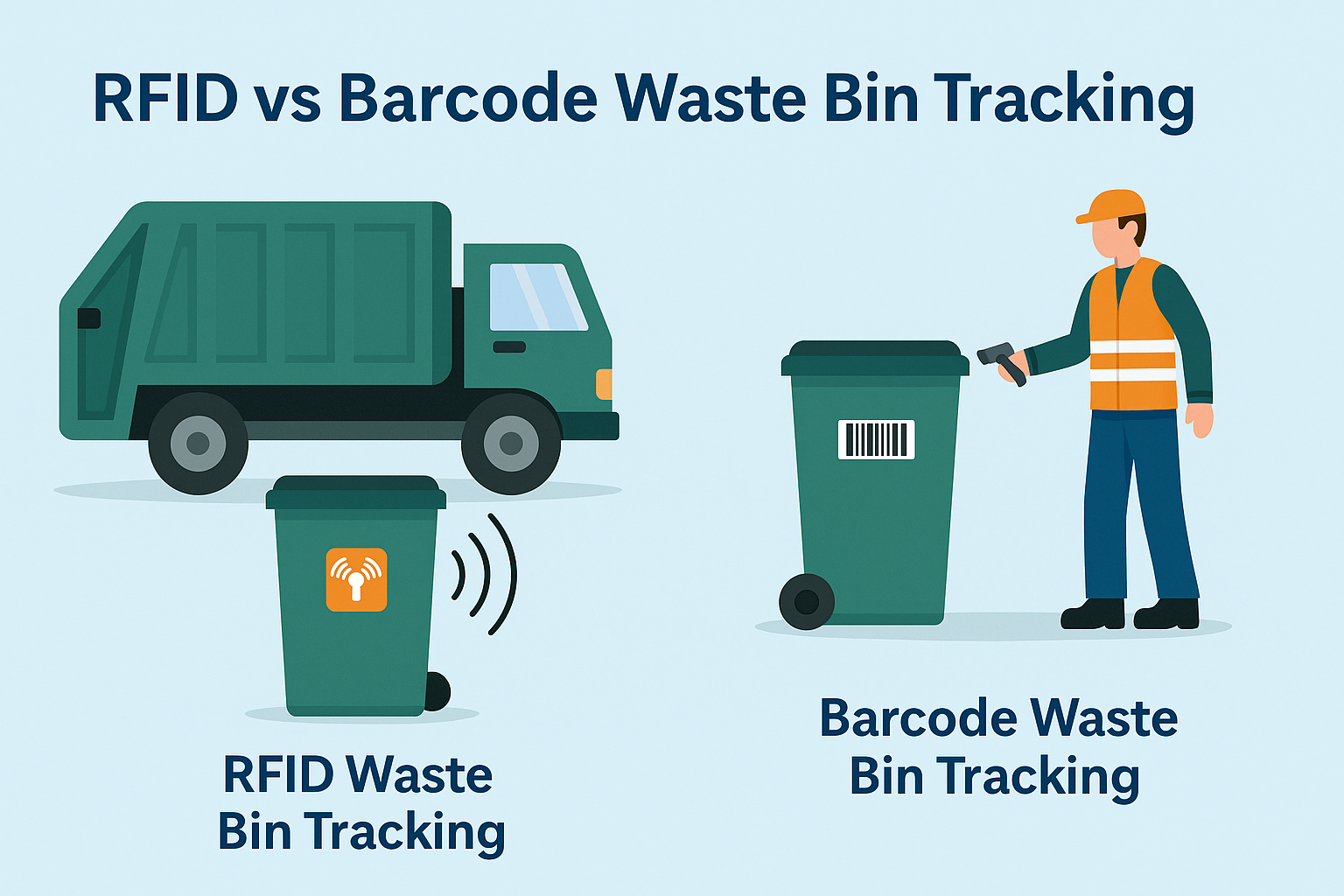
What Is RFID Waste Management
Imagine a city where every trash bin speaks — not literally — but through a tiny chip that tells the system when it’s full, when it’s emptied, and where it went. That’s what RFID waste management is doing today.

What are Bolt Seals and their Applications? | Complete Guide
In global trade and logistics, bolt seals play a crucial role in ensuring cargo security and compliance. These small but powerful devices are designed to lock shipping containers, trailers, and cargo doors with a tamper-evident mechanism.

What is an RFID Card Protector? Benefits, Use Cases, and Buying Guide
RFID technology (Radio Frequency Identification) is everywhere: in your credit cards, ID badges, transit passes, hotel room keys, and more. It offers speed and convenience, but it also opens the door to a new kind of digital theft called “skimming.” That’s where an RFID card protector comes in.

RFID Wristbands for Events: Bulk Buying Guide for Organizers
RFID wristbands for events are becoming the go-to solution for organizers who need faster entry, fraud prevention, and cashless payments at concerts, festivals, and sports venues. Unlike paper tickets or QR codes, these smart wristbands use embedded chips to streamline access, secure transactions, and improve the guest experience.
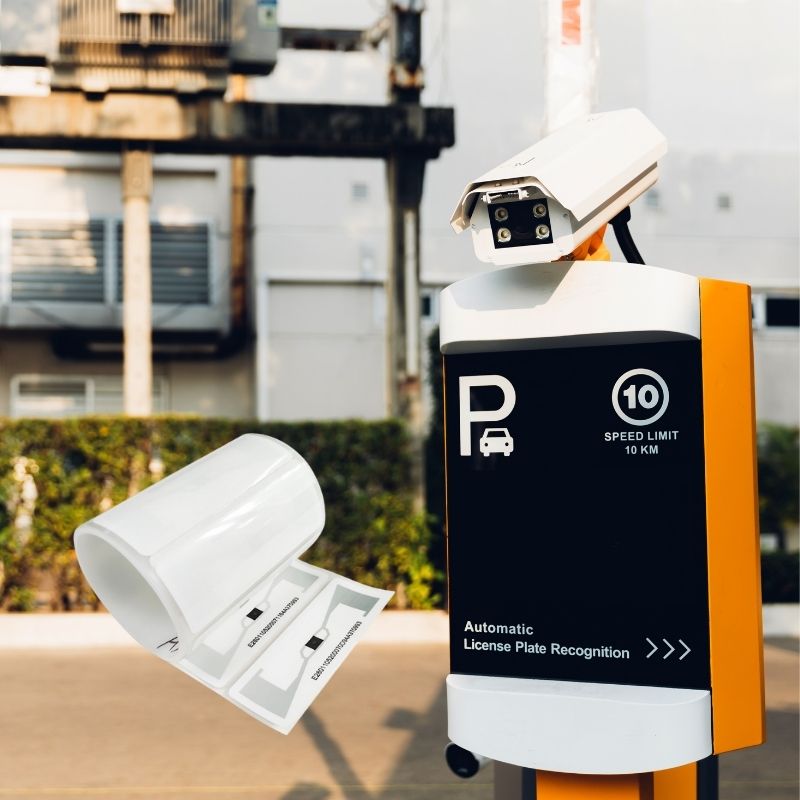
How RFID Tag on Windscreen Improves Vehicle Access Control and Toll Systems
In today’s fast-paced world, vehicle identification needs to be quick, secure, and contactless. An RFID Tag on the Windscreen provides exactly that — a reliable way to manage toll collection, parking, and gated access without stopping vehicles.
Tags
RELATED BLOGS

RFID in Logistics: How to Eliminate RFID Misrouting and RFID Label Failures
RFID in logistics is more than just a tool to speed up processes. It has become a key part of how modern supply chains operate.

What Is RFID Waste Management
Imagine a city where every trash bin speaks — not literally — but through a tiny chip that tells the system when it’s full, when it’s emptied, and where it went. That’s what RFID waste management is doing today.

What are Bolt Seals and their Applications? | Complete Guide
In global trade and logistics, bolt seals play a crucial role in ensuring cargo security and compliance. These small but powerful devices are designed to lock shipping containers, trailers, and cargo doors with a tamper-evident mechanism.



